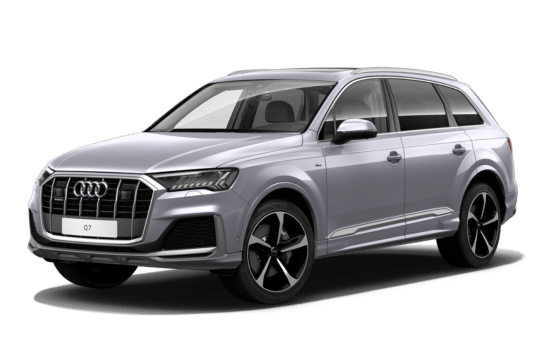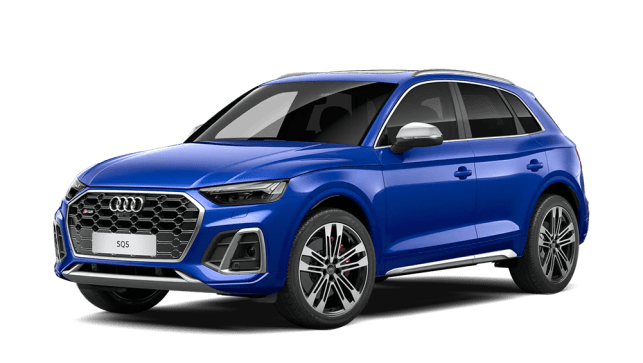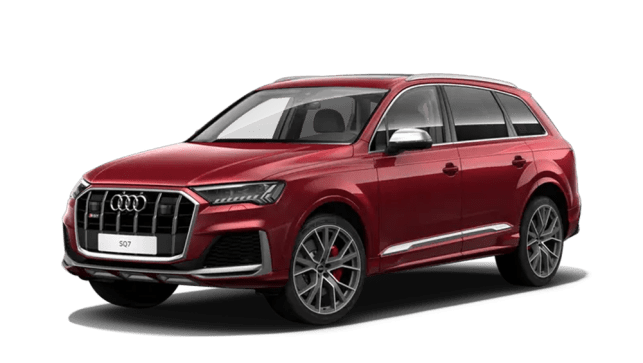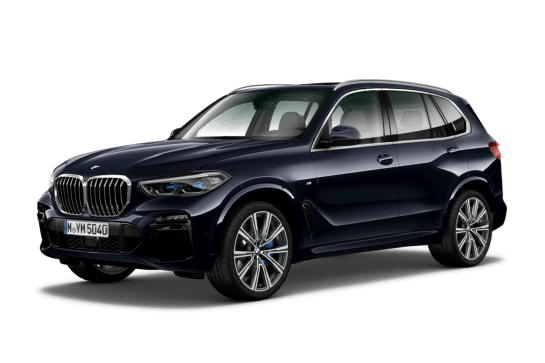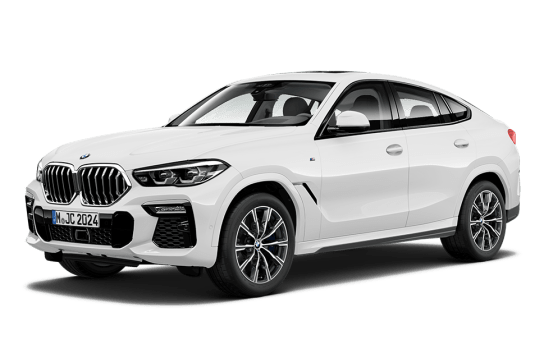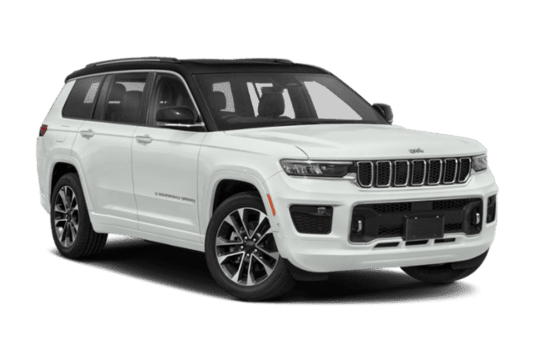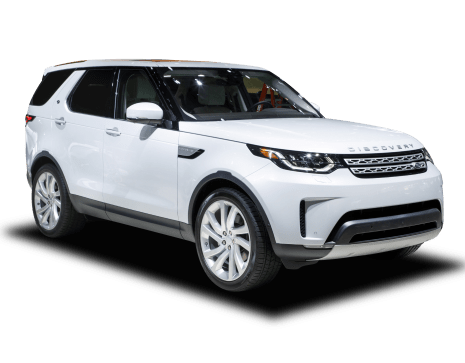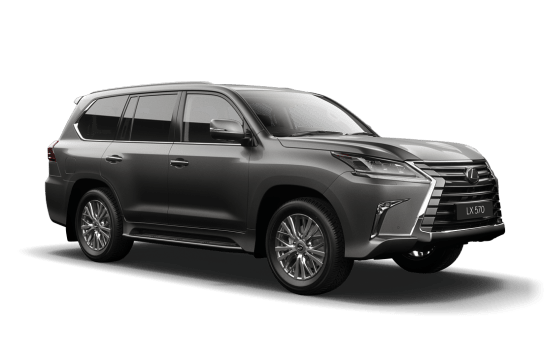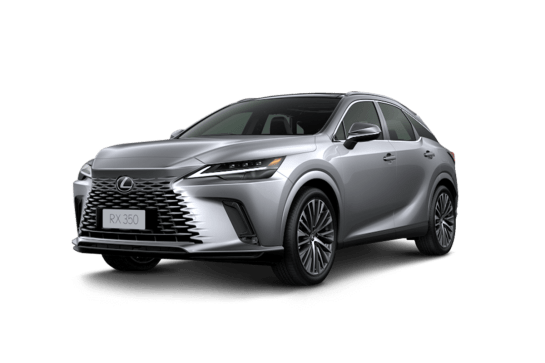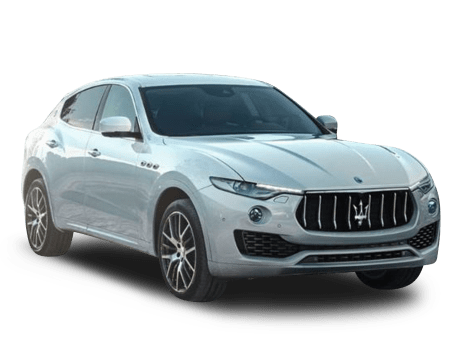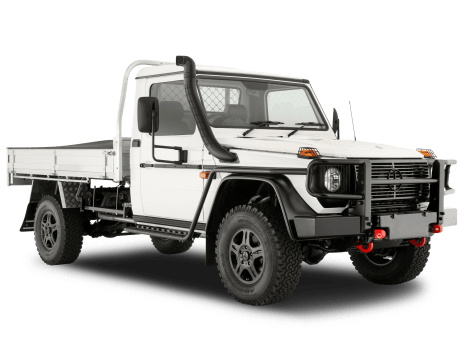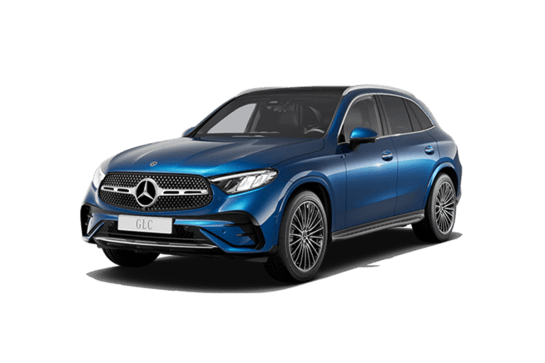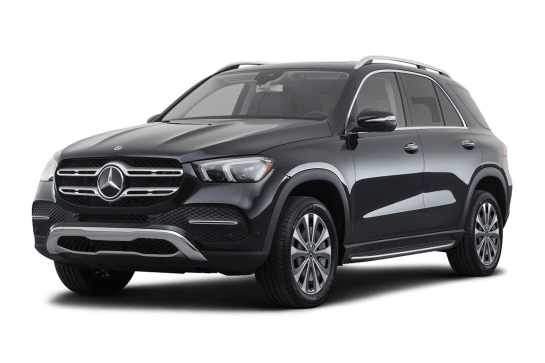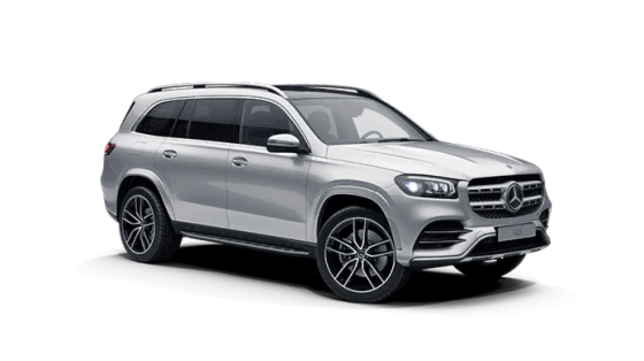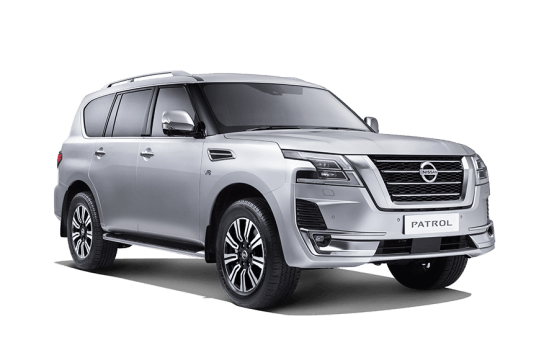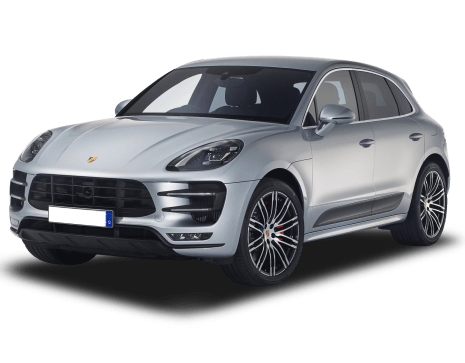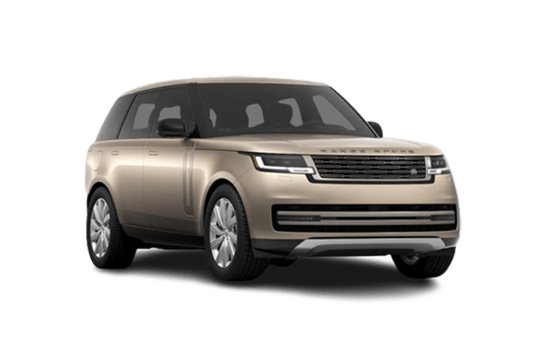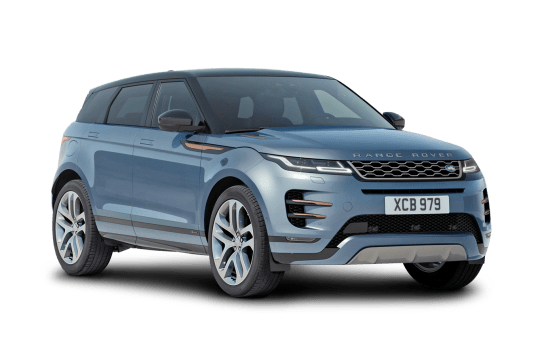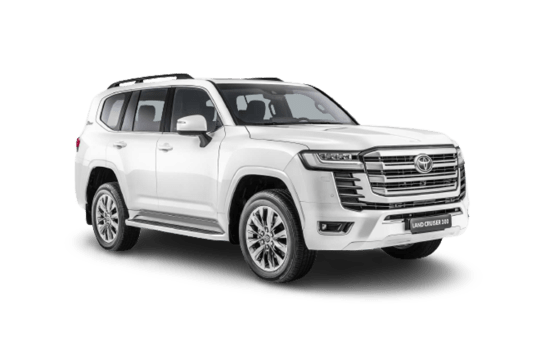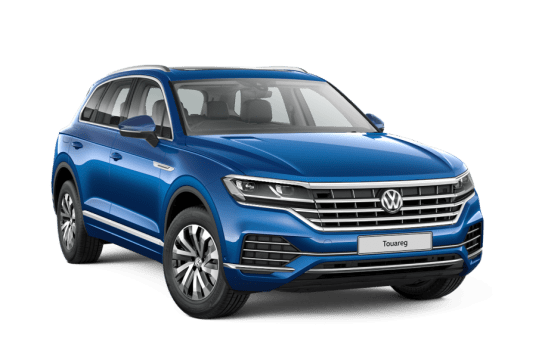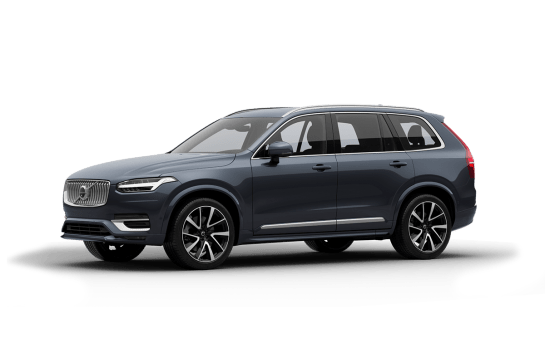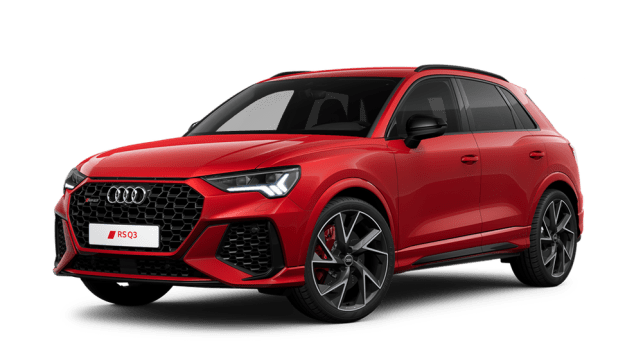
Audi RS Q3 VS Toyota Land Cruiser
Audi RS Q3
Likes
- 300kW small SUV? Yes please!
- Great dynamics but comfy ride
- Spacious with a decent boot
Dislikes
- Sportback has less headroom
- No standard head-up display
- No spare wheel
Toyota Land Cruiser
Likes
- Handsome roadside presence
- Lots of practical and luxe features
- Pleasant on-road manners
Dislikes
- Servicing schedule is a pain
- Expensive compared to rivals
- Limited customisations with styling
Summary
Audi RS Q3
Think of Audi’s range of high-performance RS models as being like a knives in a kitchen knife block. They’re all sharp but they all do some things better than others. You wouldn’t use a bread knife to cut a tomato, would you? Well, I have before, because it was on the only clean knife and well, anyway it all went wrong, and it was a mess.
So, what kind of knife is the RS Q3, then? See, it’s a small SUV with 400 horsepower. Does it lose its SUV practicality? Is it like always driving an uncomfortable race car? Is it a fake – not really fast and just an expensive little ‘sporty’ SUV?
Well at the launch of the RS Q3 Audi also brought out almost its entire knife block of other RS models. And we drove them back-to-back. So having spent hundreds of kilometres driving both versions of the RS Q3 – the Sportback and the regular SUV version, along with the Audi’s other RS superheroes I know which knife the RS Q3 is and you will too after you read this review.
| Safety rating | |
|---|---|
| Engine Type | 2.5L turbo |
| Fuel Type | Premium Unleaded Petrol |
| Fuel Efficiency | 8.9L/100km |
| Seating | 5 seats |
Toyota Land Cruiser
Australia has a long established love affair with the Toyota LandCruiser. The first owner was Sir Leslie Thiess, and he bought it to assist in the construction of what was, and still is, considered one of the most complex hydro schemes in the world - the Snowy Hydro Scheme.
Due to its proven ability to tackle some seriously hard terrain, it soon became almost synonymous with ruggedness and unbridled grunt.
Naturally, with a history like that there's some healthy rivalry between LC owners and, well, everyone who doesn't own one.
Read more about
- Toyota suspends shipments of HiLux, LandCruiser and more after 'irregularities' found during engine testing - Toyota Australia seeking information on local impact
- Coming soon! Is a Toyota LandCruiser using a hydrogen-fuelled combustion engine under study by the brand?
- Toyota to resume diesel engine production for HiLux, LandCruiser after Japanese government lifts shipment suspension
There have been no updates for the 2024 Toyota LandCruiser 300 Series but it's competing against heavyweights like the Nissan Patrol, Land Rover Discovery and the Toyota's cousin, the Lexus LX. All of which have seen some decent overhauls with tech or mod cons recently.
My family of three have been family-testing the GR Sport grade to see if the LC300 lives up to the legend or if it's competition is starting to nip at its heels.
| Safety rating | |
|---|---|
| Engine Type | 3.3L turbo |
| Fuel Type | Diesel |
| Fuel Efficiency | 8.9L/100km |
| Seating | 5 seats |
Verdict
Audi RS Q38/10
The RS Q3 is absolutely worthy of the RS badge – it’s plush, quick, comfortable, handles superbly and doesn’t lose any practicality over a regular Q3. Which knife is it then in the Audi RS model knife block? Well there was a moment on the launch when our convoy encountered roadworks in the bush and it meant everything from an Audi R8 (rear-wheel drive), RS 7, RS 6 Avant to a TT RS were forced to gingerly drive for a couple of kilometres on a bumby dirt road. I was in the RS Q3, with all-wheel drive, more ground clearance and softer suspension with more travel than the others – and it was tempting to stomp on the accelerator and leave the rest in my dust. So, it’s the adaptable one in the block - the small knife you end up using for everything.
Note: CarsGuide attended this event as a guest of the manufacturer, with travel and meals provided.
Toyota Land Cruiser8.4/10
The Toyota LandCruiser 300 GR Sport is a total knockout when it comes to its looks, comfort and practicality. It’s stupidly easy to drive and has a fuel efficiency that should make you swoon but the servicing is a bit annoying and it’s not the most affordable option on the market. However, even though it hasn't benefited from any updates this year, you don't feel like you're missing out on any luxuries.
My son adores it, wants it and will be very disappointed when we hand it back. Naturally, he gives it a 10/10.
Design
Audi RS Q38/10
Like the household variety Q3 it’s based on, the RS Q3 comes in two body styles: a Sportback which has a sloping roofline giving it coupe looks; and a regular-looking SUV version which has the traditional more tall and upright design.
I’m not a fan of coupe SUV styling because it reduces headroom (read about that below), but the Sportback does look the more venomous of the pair.
That said they both look like little monsters in their RS superhero outfits which includes the aggressive front bumper boasting giant (and functional) air intakes either side of the enormous grille, 21-inch wheels with giant brakes and red calipers, side skirts and thick wheel arch surrounds for a flared guard look, chunky diffuser and huge oval tail pipes with a black finish.
Inside there are leather RS seats with ‘honeycomb’ stitching, metal pedals, and a leather flat-bottomed RS steering wheel, while the doors and dashboard are trimmed with Alcantara and aluminium.
The rest of the interior showcases the Audi’s most up-to-date styling and tech revealed when the Q3 arrived in 2019 – from the integrated 10.1-inch media display to the dash controls which sense when your hand is approaching and light up to help them find their way in the dark.
At 4506mm end-to-end the RS Q3 is a big, small SUV. For a bit of perspective, it's little brother the Q2 is 4190mm long.
Toyota Land Cruiser
Design is 100 per cent subjective. I love the look of the LC300 GR Sport because it features what I feel is a timeless, handsome shape.
For some, it may look too big and brutish, because you could throw a bunch of beefy words at it, and somehow, they’d all fit the roadside presence of this extra-large SUV.
What visually sets the GR Sport apart from its siblings are the multitude of black accents across the body from the rear badging, wheels and arches, door handles and roof racks. The grille is also distinctly different in its horizontal design with the Toyota badging capitalised in a bold white font for extra effect.
Head inside and the cabin looks ruggedly capable with the dimensions of the centre console and dashboard complementing the external looks.
Technology looks upmarket, joinery is solidly put together and the leather upholstery adds to the plush comfort of the seats but there is a sense of capability in the physical buttons and dials still found on the dashboard.
Which is where I start to really like the LC300 GR Sport because everything is where you expect it to be - this is not a car you’ll get flustered in but nor does it have that generic Toyota look.
Practicality
Audi RS Q38/10
This will depend on whether you buy the Sportback or the regular SUV-shaped RS Q3, but practicality does not vary between them as much as you may think.
The Sportback loses out on headroom for the rear passenger because of its sloping roofline. I can still sit back there but at 191cm (6'3") with amazingly high hair I’m getting pretty friendly with the ceiling. Legroom though is fine – and I have legs for days.
Explore the virtual Audi RS Q3
Having said that, if I was a backseat passenger on a trip further than just down the road I’d prefer to be in the regular SUV-shaped RS Q3 where its tall, flat roofline offers loads of headroom, and legroom is also good.
All RS Q3s, like the Q3, are five seaters, but bags not sit in the squishy middle back seat.
The boot’s cargo capacity is the same for both at 530 litres, which is also equal to an ordinary Q3. If you want to see how high the boot’s load lip is, I demonstrate it in the video above – best not to watch while eating, though.
I’ve never met an Audi with outstanding cabin storage and the RS Q3 is no exception, with small door pockets and a tiny centre console bin.
It does have four cupholders (two up front and two in the back) and the wireless charger living in the hidey hole near the shifter fits my big phone, so it’s not all bad news there.
Next to the wireless charger there are two USB ports (a mini Type-C and a larger Type-B), while the second row has two Type-C USB ports.
There are directional air vents for those in the back, too.
Toyota Land Cruiser
The front row is roomy and even with a co-pilot, you feel like you have yards of space to settle into. The seats offer a wide seat and plush padding, as well as heat and ventilation functions which adds comfort for longer trips.
Individual storage is good with a large glove box, two cupholders, two drink bottle holders and a large middle console that also features a 'cool box' function for drinks or snacks.
The comfort of the front is replicated in the backseat, which deftly accepts the height of my 183cm father. The width of the seat can easily accommodate three adults in relative comfort or, if you have a few tots in tow, three child seats.
Amenities and storage in the back row are what you'd expect for a top model in this class. The rear outboard seats feature heat and ventilation functions and there is dual air-conditioning and climate control, as well as, four directional air vents.
The fold-down armrest features two cupholders while the doors hold a drink bottle each and a small storage bin. There are also two map pockets and you can access the middle console cool box with a rear-mounted button.
The GR Sport does remind you that it's a big car with its 235mm ground clearance and my seven-year-old son declared I needed to hold all of his stuff this week as getting in and out is a ‘two-handed- operation'. Like him, I too am grateful for the grab handles and side steps in this car.
The technology is well-rounded and simple to use. The 12.3-inch touchscreen multimedia system looks great and is responsive to touch. It has built-in satellite navigation and a Toyota Connected Services app with three years of complimentary updates. There is also wired Apple CarPlay and Android Auto, AM/FM radio and DAB+ radio but there’s not much else to access in this system.
The mostly analogue instrument cluster features a 7.0-inch tech screen and this is where you can do a lot of your customisations with display and safety.
The charging options are solid up front with the choice of a USB-A and C port, 12-volt socket and a wireless charging pad. The rear gets two USB-C ports and a 12-volt socket as well.
The boot is cavernous with its 1131L of luggage capacity and that’s with all seats in use. The squared shape of the boot and the 90-degree angle the boot lid opens to are quite practical, especially when fitting bulky items or loading things in the rain.
All GR Sports come with a powered boot lid and a domestic 220-volt socket for charging larger items while adventuring.
Price and features
Audi RS Q38/10
The RS Q3 lists for $89,900 for the regular SUV body shape while the Sportback is $92,900.
Both come with the same standard features, including a 10.1-inch media display with Apple CarPlay and Android Auto, sat nav, 12.3-inch digital instrument cluster, a 15-speaker Bang and Olufsen sound system, leather RS steering wheel, proximity key, 360-degree camera, front and rear parking sensors, privacy glass, power tailgate, 'Matrix LED' headlights and three-zone climate control.
The standard RS seats are Nappa leather, the front ones are heated and power adjustable.
Looking at the standard features for a Q3 it’s clear Audi has fitted the RS Q3 with everything it has for the model – a lot of the equipment such as the sound system, climate control and LED headlights are optional on a ‘normal’ Q3.
Some of these features had to be optioned on the previous RS Q3, too, so relative to the outgoing model the new car is better value.
Compared to it’s rivals the Audi is good value, too. The Mercedes-AMG GLA 45 is $91,735 while the BMW X3 M40i is nudging $110K.
Toyota Land Cruiser
The LC300 series is offered in six grade levels for our market and the second-from-top-spec GR Sport model (the Sahara ZX is slightly more expensive) is on test here. It’s priced from $145,876 before on-roads which is almost $4K dearer than last year’s pricing but doesn’t feature any new upgrades.
Its price point also positions it more towards the top-end of the upper-large SUV market, compared to its rivals. Sitting at the top of that list is the Lexus LX500D F Sport at $180,061 MSRP and then the Land Rover Discovery D300 at $129,020 MSRP.
The most affordable rival is the Nissan Patrol Warrior for $104,160 MSRP but it's important to note that the Patrol is only available with a hefty 5.6L V8 petrol engine, there's no diesel variant. Which is something to consider when you're at the bowser.
In terms of luxuries, there is a heated steering wheel, powered front seats with heat and ventilation functions, leather upholstery and synthetic leather trims throughout. The rear outboards seats also have heat and ventilation functions and a sunroof comes standard.
The technology looks premium with a 12.3-inch touchscreen multimedia system and a 7.0-inch digital instrument cluster headlining the dashboard. There's some 'old world' charm with the CD/DVD player at the front.
Tech is rounded out by the wired Apple CarPlay and Android Auto, built-in satellite navigation, Toyota Connected Services App, head-up display, three USB-C ports, one USB-A port, two 12-volt sockets and a wireless charging pad. There is also a 220-volt domestic socket located in the boot and a premium 14-speaker JBL sound system.
The key practical features include a powered tailgate, cool box (middle console), four-zone air-conditioning and climate control, push-button start, keyless entry and a full-size spare wheel.
Under the bonnet
Audi RS Q39/10
Ordinary Q3s have four-cylinder engines which make no more than 132kW, but the RS Q3 has a 294kW 2.5-litre five-cylinder turbo-petrol engine. Plus, with 480Nm there’s whopping torque for a small SUV.
This five-cylinder also powers the Audi TT RS and the RS 3 and is suited well to small and agile beasties like these, and also to the RS Q3 with its responsive and energetic ‘boosty’ nature. Aud’s 'S tronic' seven-speed dual-clutch auto shifts fast sending the drive to all four wheels.
Toyota Land Cruiser
The LC300 models all share the same 3.3-litre V6 twin-turbo diesel engine that produces a hefty 227kW and 700Nm of torque. Making it powerful enough to easily handle its 3.5-tonne braked towing capacity.
The GR Sport has a 10-speed auto transmission and has a full-time 4WD system with high and low range. It also has front, rear and centre diff locks, so adventuring pursuits should be a breeze but check out Crafty’s off-road review on this model for more 4WD insights.
Efficiency
Audi RS Q37/10
High-performance cars with combustion engines love fuel and lots of it. Audi officially says the RS Q3 should use 8.9L/100km over a combination of open and urban roads. We’ll be able to test that once we have an RS Q3 in our garage, but either way, that’s on the thirsty side.
Toyota Land Cruiser
It's big and has a lot of power, so it should be pretty thirsty ... right?
Wrong! The official combined fuel-cycle consumption figure is 8.9L/100km and my real world usage came out at 9.8L/100km after doing a mix of long open-road trips and some urban stuff.
Based on the official combined fuel cycle and the two fuel tanks, which equal 110L, you’d be able to get a theoretical driving range of 1236km.
Driving
Audi RS Q39/10
In the intro I likened the RS model range to a knife block full of all well-crafted sharp things, each with different purposes.
At the launch of the RS Q3, Audi also introduced its other new and updated RS models to us, from the RS 7 and RS 6 Avant to the TT RS and even the R8 supercar.
The meat cleaver is definitely the RS 6 Avant which feels like a luxury locomotive with seemingly never-ending sledgehammer acceleration.
I’m beginning to regret the knife analogy because I don’t know knives very well. But I do know cars and the RS Q3 is probably the opposite to an RS6 Avant in that it’s small and agile, with an energetic engine that pauses only to catch its breath in the form of building its boost before sling-shotting you towards the next corner. And it’s loud inside - even with the windows up.
I was impressed by the ride comfort which never became harsh even in 'Dynamic' mode. The suspension is soft enough for acceleration and braking to make the nose pitch and dip, but handling, body control and composure is excellent.
While you can shift gears yourself using the paddles in manual mode, that transmission is best left in auto and in the 'S' setting. You’ll get the full noise under hard acceleration and lightning quick shifts to go with it.
Regular Q3s take eight to nine seconds to accelerate from 0-100km/h. The RS Q3 can do it in 4.5 seconds, which is getting into properly quick territory where steering wheels also becomes a handrails for something to hold onto as you’re yanked down the road with superb all-wheel drive traction.
The same 2.5-litre five cylinder is in the RS 3 Avant but that weighs about 200kg less and can hit 100km/h in 4.1 seconds. But the only way I can sit in the back of an RS 3 is if I put my knees under my chin – not so with the RS Q3.
Toyota Land Cruiser
The GR Sport is a massive car but it doesn’t handle like one. That's not to say it handles like a small car but it doesn't feel like a truck to drive.
The power is effortlessly gutsy and there's no issue keeping your speed consistent on hills. The 10-speed auto transmission manages its gear changes and power hits smoothly. The rumble of the V6 engine is also quite therapeutic when it comes time to tackle an overflowing causeway or muddy road.
The GR Sport feels solidly grounded and even on winding roads, the roll in corners isn’t bad at all. Less so than a Prado, actually.
The ride comfort is very good in the GR Sport grade as it has special adaptive suspension and that means that you really aren’t bothered by the road surface. Besides some whistling from the roof racks, there’s also little outside noise and it feels refined in the cabin because of it.
The wide windows and high seating position offers great visibility all around but I'm very aware of how large the car is as I can't see my son when he walks around it. The sensors alert you but make sure all kids are accounted for before you start moving.
Despite its size, the GR Sport is very nimble to manoeuvre with a small 11.8m turning circle and steering that is responsive.
Parking has been no issue for me this week and while the 360-degree view camera is a bit too fish-eye lense for me, its clear and you get used to it pretty quickly.
Safety
Audi RS Q39/10
ANCAP gave all variants of the Q3 the maximum five-star rating in 2018 with the exception of the RS Q3 which is yet to be tested.
What I can tell you is that for this model Audi’s made the safety features standard across the range and this includes the AEB system with pedestrian and cyclist detection, rear cross traffic assistance, lane departure warning with lane keeping assistance.
The airbag count is also the same as a regular Q3 at six, and like that SUV you’ll find three top tether anchor points and two ISOFIX mounts for child seats across the second row.
Q3s come with a space saver spare, but the RS Q3 has a puncture repair kit.
Toyota Land Cruiser
The GR Sport is the only grade not covered by the LandCruiser 300 Series' 2022 five-star ANCAP safety rating.
Toyota doesn’t have any plans to get it rated but it still features all of the safety equipment of its top-spec Sahara siblings.
Standard items include AEB, adaptive cruise control, lane keeping aid, lane departure alert, traffic sign recognition, blind-spot monitor, rear cross-traffic alert, 360-degree camera system, trailer sway control, parking sensors (front and rear), and a rear parking support brake.
Other safety highlights include an alarm system, SOS emergency call button, stolen vehicle tracking and an automatic collision notification system.
The GR Sport has 10-airbags but misses out on the newer front centre airbag.
There are ISOFIX child-seat mounts on the rear outboard seats and three top-tether anchor points. You can absolutely get three child seats installed but you miss out on a third row due to the grade level. Which might be a bummer for larger families who are wanting this spec.
Ownership
Audi RS Q36/10
The RS Q3 is covered by Audi’s three-year/unlimited kilometre warranty which not only falls behind in duration compared to mainstream brands but also its direct rival Mercedes-Benz which now has five-year/unlimited kilometre coverage.
Service intervals are every 12 months or 15,000km with a three-year plan ($2320) or five-year plan ($3420) available.
Toyota Land Cruiser
The GR Sport comes with a five-year/unlimited kilometre warranty and if you stick to your service schedule, you get an additional two years of engine coverage.
There is capped-priced servicing for up to five years or 100,000km, which entails a total of 10 services or two a year as servicing intervals are a pain at every six months or 10,000km, whichever occurs first.
Services are $400 which equates to $800 per year, which is a bit expensive but not outrageous for the class.


